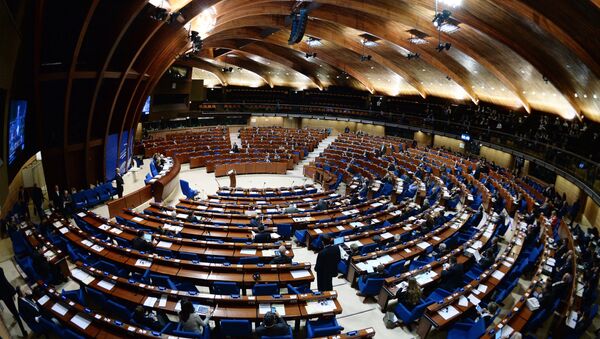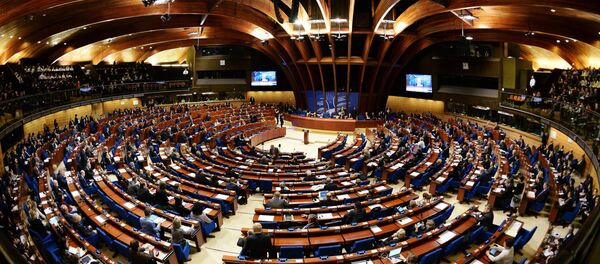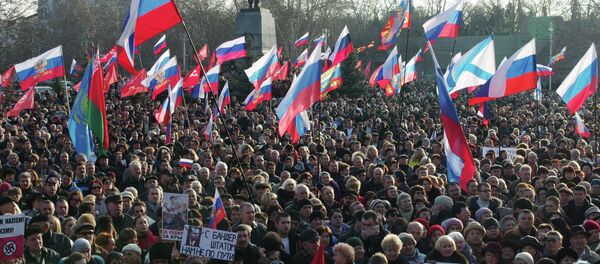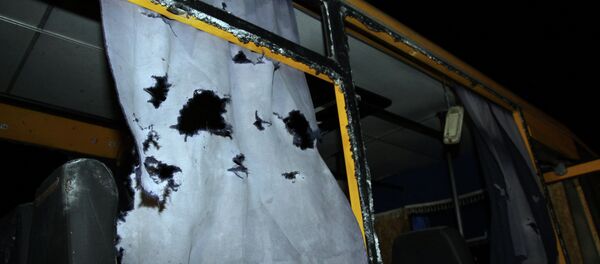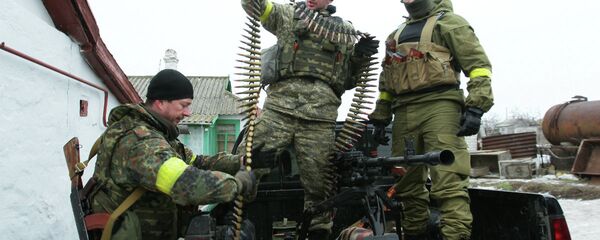"If we want to get out of the crisis, let's go back to Crimea! Let's organize a new referendum, let's supervise this referendum by the Council of Europe, by the OECD, by whoever and if the outcome is again 'we don't want to stay in Europe, we want to join Russia' that is evident that it is democratic and we have to accept this outcome," Johannes Hübner said at the current PACE session.
Crimea's reunification with Russia took place in March 2014, raising accusations by the West that Russia "annexed" the region. More than 96 percent of voters were in favor of Crimea reunifying with Russia. Following the reunification, Western nations introduced several rounds of sanctions on Moscow.
In light of the situation with Crimea, PACE suspended Russia's voting rights, with the Russian delegation walking out of the spring session and skipping the summer session in protest. PACE's five-day winter session began Monday. The issue of Russia's credentials at the assembly will be discussed on Wednesday.
He also added that Europe had missed an opportunity to alleviate the bloody conflict in eastern Ukraine.
“I think that Europe, the Council of Europe, my country as well as several other countries in Europe missed the opportunity to stand up and… to do something positive for the conflict,” Johannes Hübner said at a roundtable in Strasbourg.
He also accused pro-Kiev forces of attacking civilian targets in eastern Ukraine on numerous occasions, but did not elaborate on what attacks he was referring to.
“It is clear that either the Ukrainian forces or the private army of Mr. [Ihor] Kolomoyskyi who is joining the Ukrainian army there are doing this,” Hübner said.
Europe Missed Opportunity to Alleviate Ukrainian Conflict
Hubner also said that Europe missed an opportunity to alleviate the bloody conflict in eastern Ukraine.
"I think that Europe, the Council of Europe, my country as well as several other countries in Europe missed the opportunity to stand up and… to do something positive for the conflict," Johannes Hubner said at a meeting in Strasbourg.
He also accused pro-Kiev forces of attacking civilian targets in eastern Ukraine on numerous occasions, but did not elaborate on what attacks he was referring to.
"It is clear that either the Ukrainian forces or the private army of Mr. [Ihor] Kolomoyskyi who is joining the Ukrainian Army there [is] doing this," Hubner said.
Shelling in the southeastern region of Donetsk recently intensified, with Kiev officially acknowledging the commencement of a major security operation at Donetsk Airport.
The January 13 bus shelling in the town of Volnovakha, Donetsk Region killed 13 civilians. At least eight Donetsk residents were killed in the shelling of a trolleybus stop last week.
On Monday, Russian President Vladimir Putin stressed that the deteriorating situation in southeastern Ukraine is because of Kiev's desire to forcibly suppress the the region's residents.
Kiev began a military assault on southeastern Ukraine in mid-April 2014, in response to the refusal by local residents to recognize a new coup-imposed government. The sides have repeatedly accused each other of violating a ceasefire agreement reached in September 2014 in the Belarusian capital of Minsk.
